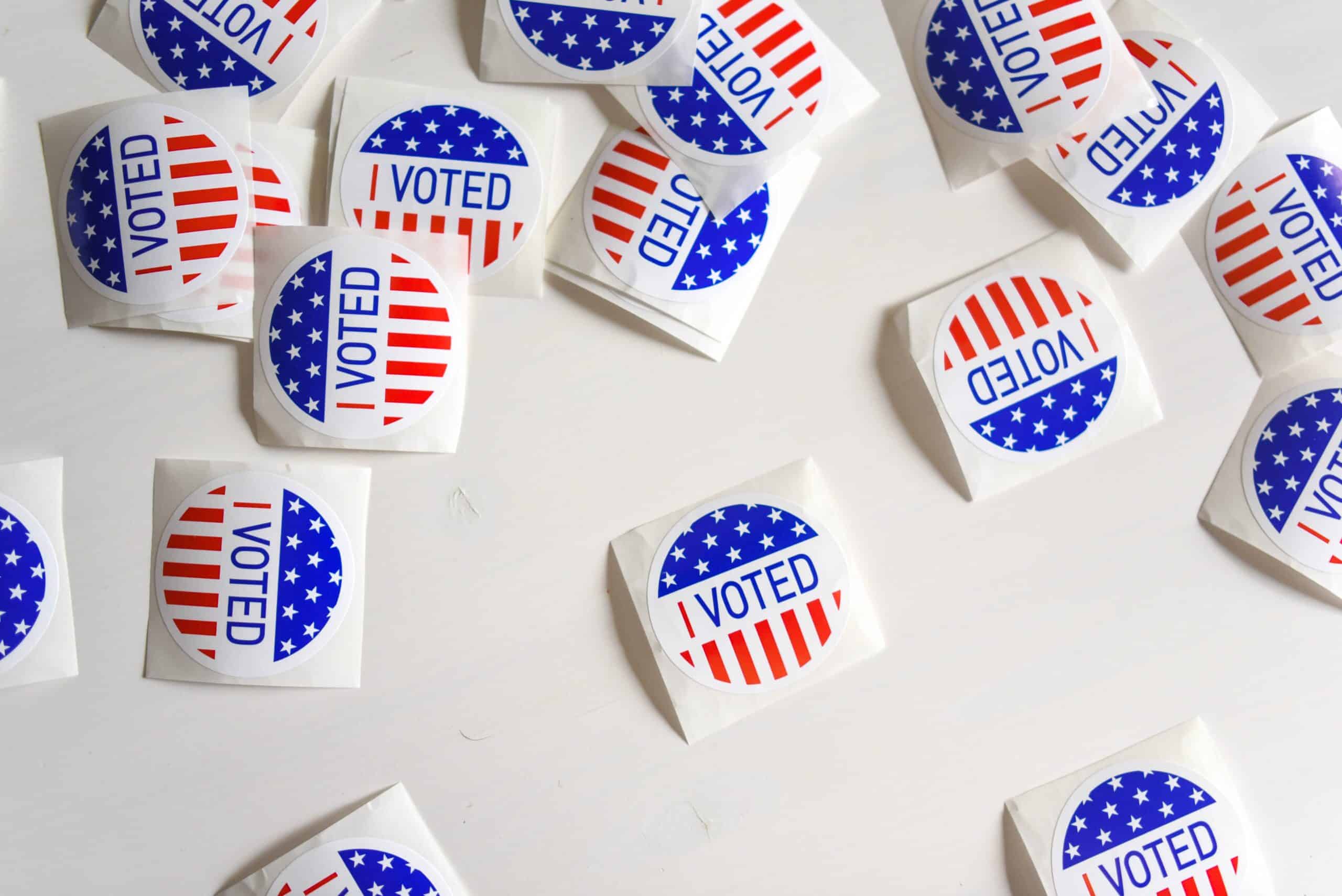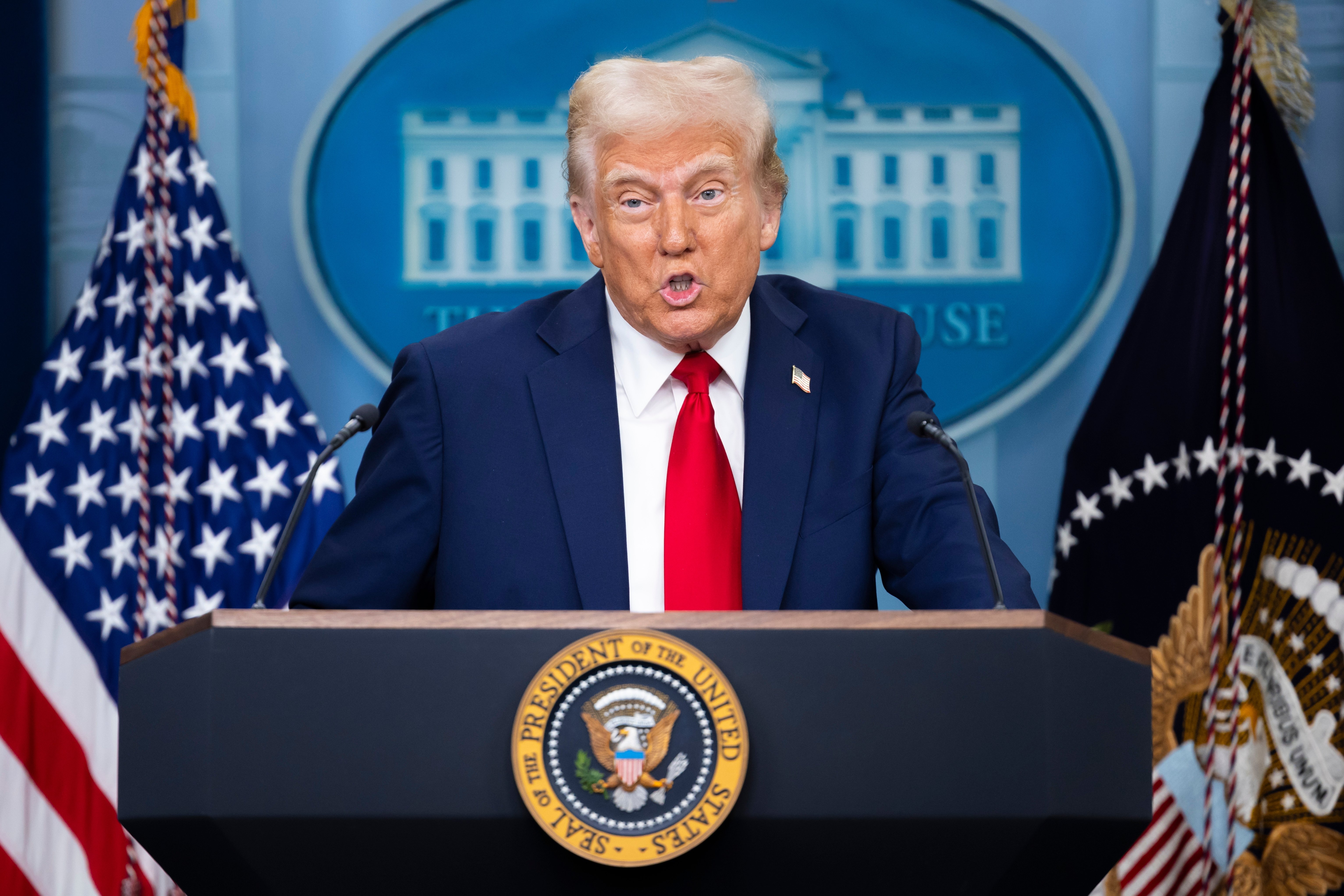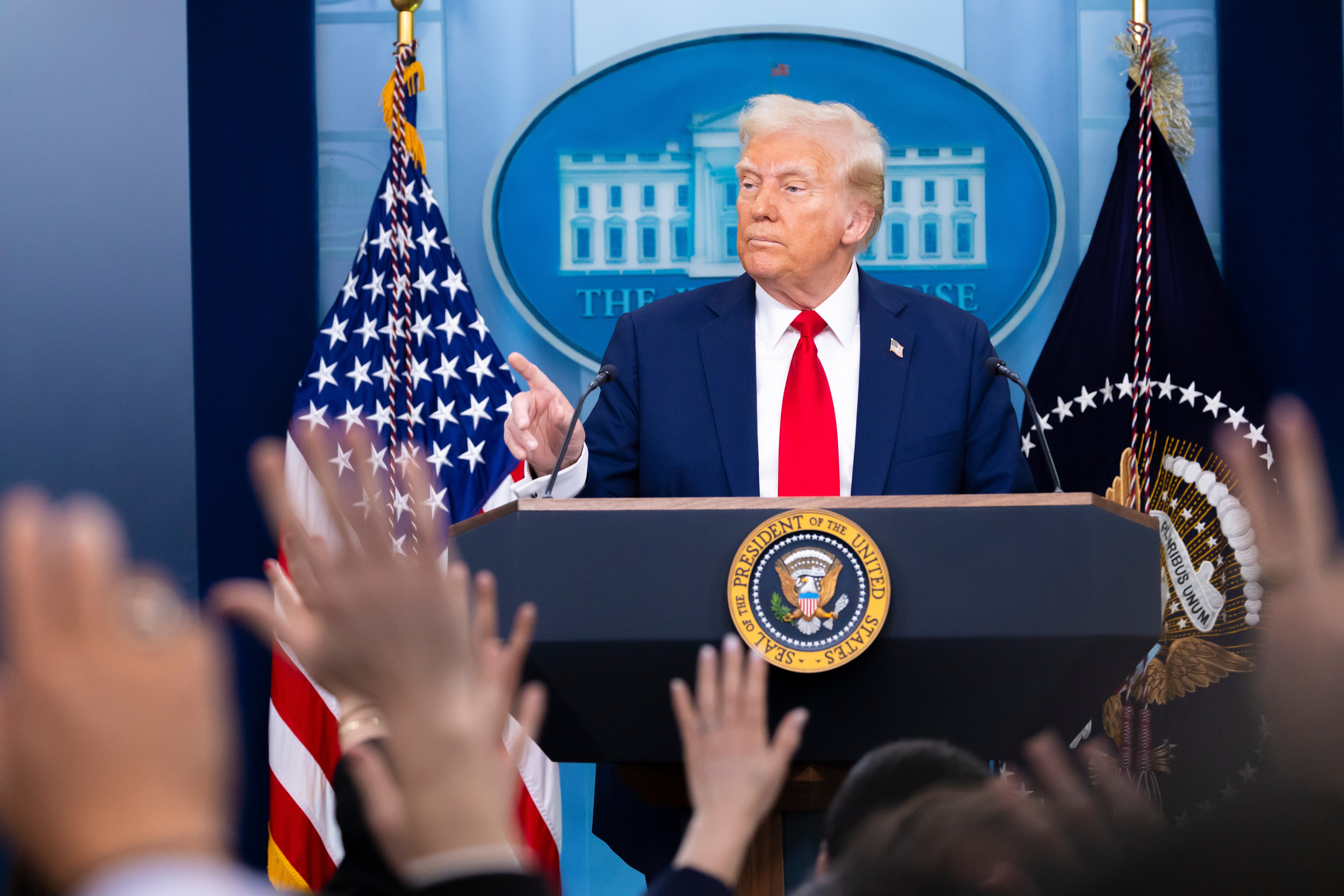Written by Ethan Mort and Nate Schwartz
Despite most of the country spending the last few weeks, if not months, focusing on November’s general election, New England still has two final primaries before the nation can turn their sole focus to November 8th. New Hampshire and Rhode Island host the final primaries today, with both seeing a significant amount of money spent so far in a campaign spending analysis. In New Hampshire, there are three high-profile competitive Republican primaries: New Hampshire’s First and Second Congressional Districts and its Senate primary. Each of the three elections will decide who will face well-funded Democratic incumbents in the nationwide contest for the control of Congress. In Rhode Island, numerous Democrats are seeking to challenge unelected Governor’s Dan McKee path to election. Additionally, Rhode Island Democrats are seeking to fill retiring Rep. Langevin’s former seat (RI CD-02).
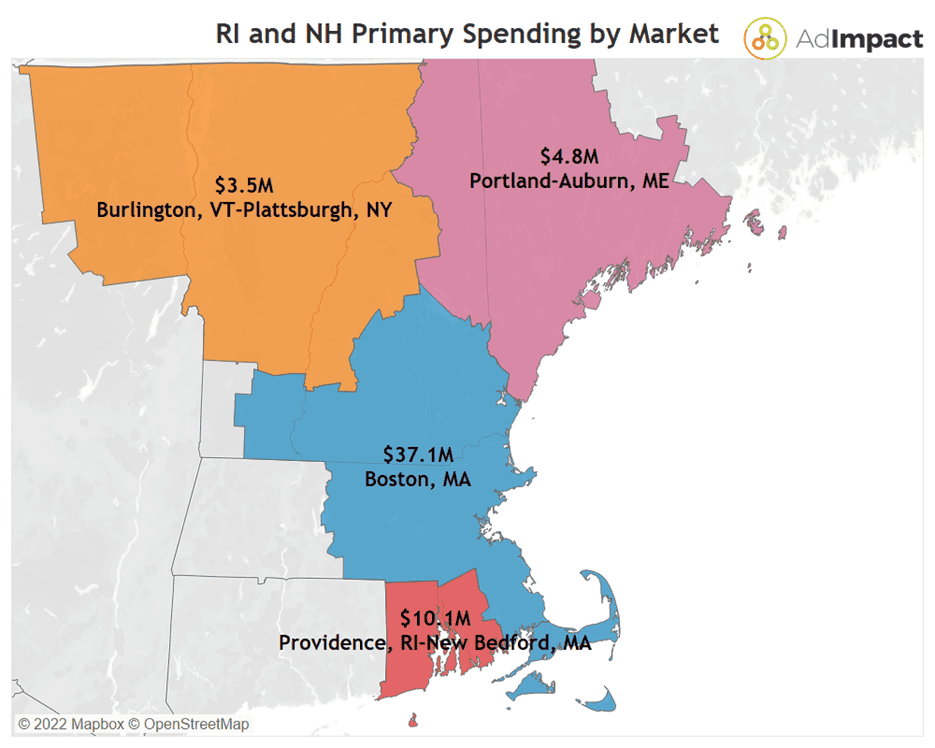
New Hampshire CD-01 and CD-02
After Governor Sununu vetoed his own party’s redistricting map, the New Hampshire Supreme Court’s redrawn maps left NH CD-01 and NH CD-02 virtually untouched, resulting in the continuation of two of the country’s most competitive seats. While both are currently represented by Democrats, Republican primaries in both NH CD-01 and CD-02 have seen incredibly competitive campaign spending.
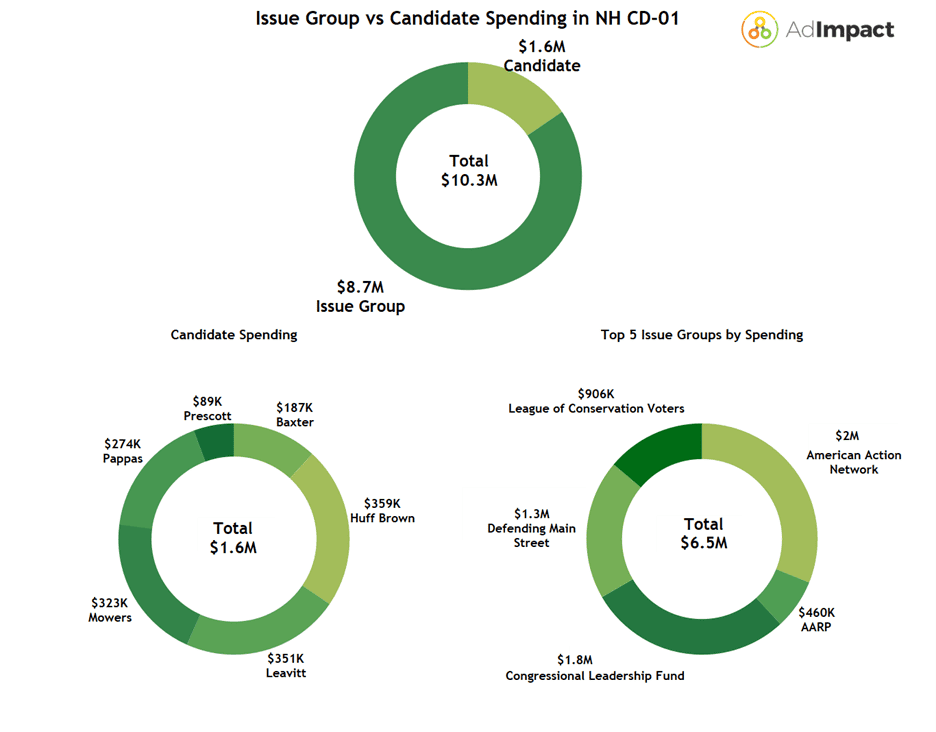
Tonight, we will see the conclusion of an incredibly competitive GOP primary in New Hampshire’s First Congressional District that will determine who faces Representative Pappas in what is predicted to be a toss-up general election. AdImpact tracked spending from 32 different advertisers in the primary-six candidates and 26 issue groups. This has culminated in a primary election that has seen $10.3M spent on ads. Congressional Leadership Fund spent $1.8M supporting Matt Mowers and Defending Main Street spent $1.3M on a series of ads attacking Karoline Leavitt after she began surging in the polls. As far as candidate spending, Gail Huff Brown has a slight advantage, spending $359K, edging ahead of Leavitt’s $351K. Following the primary, the Republican nominee will see $8M in pre-booked ads supporting their election effort against the $6M in pre-booked airtime set to support Pappas.
New Hampshire’s Second Congressional District also hosts a competitive GOP primary between George Hansel and Bob Burns. Hansel has spent $180K and the American Liberty Action PAC has spent $420k ads supporting Hansel’s campaign. Meanwhile, Burns has only spent $15K on this race. However, in a similar case to Illinois' gubernatorial election, the Colorado Senate election, and in MI CD-03, the Democratic issue group, Democrats Serve, bought ads attacking Burns. Spending $600K, Democrats Serve placed ads labelling Burns as “the ultra-conservative candidate” who follows the “Trump playbook”. Overall, $1.6M was spent on this primary. Following the primary, the Republican nominee will see $1.7M in pre-booked ads supporting their candidacy while incumbent Ann Kuster will see $1M in pre-booked ads bolstering her reelection.
NH Senate Campaign Spending Analysis
The Granite State will be on the frontlines of the battle for control of the Senate yet again this year, as it so often is as of late. In the primary alone, we have tracked a total of $58M. Democrats have spent $34M compared to the Republicans’ $24M. As the dust from the nation’s prior 2022 Senate primaries settles, the New Hampshire Senate primary made it within the top five most expensive Senate primary elections this cycle.
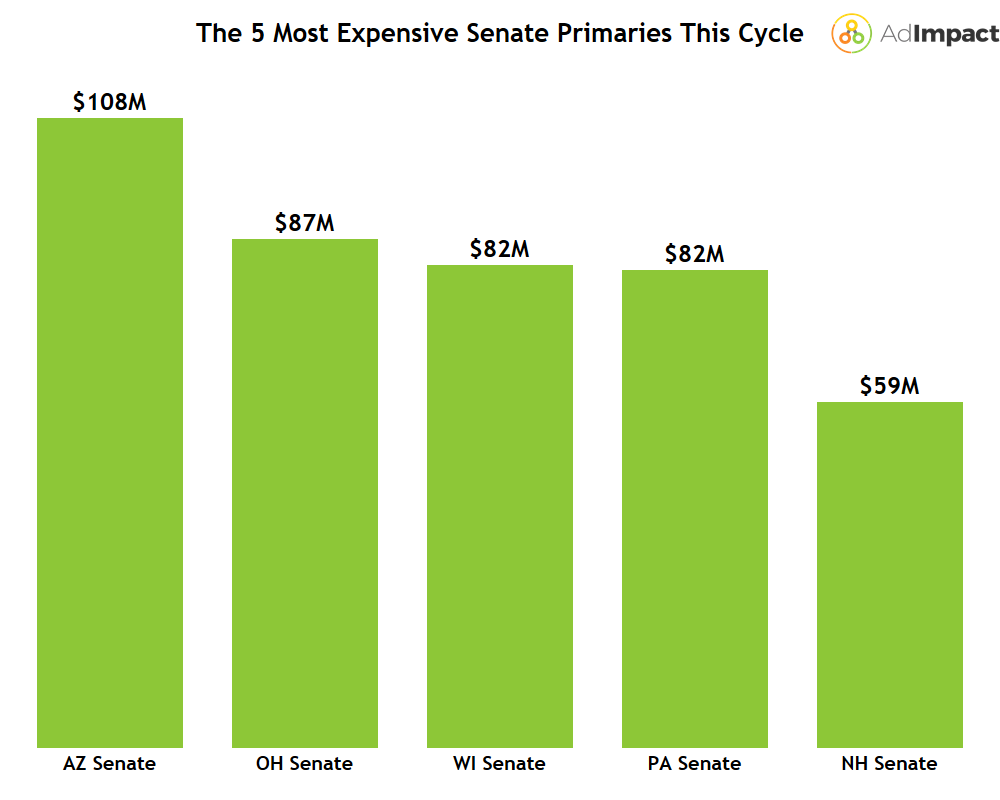
On the Republican side, this race has attracted big money from issue groups and candidates alike. The biggest spender has been One Nation, who has spent $12M on multiple ads blaming Hassan for “making inflation worse”. The NRSC has also released ads attacking Hassan in a similar way. The second largest spender has been the White Mountain PAC, a PAC supporting Chuck Morse and attacking his most direct opponent—Don Bolduc for being anti-Trump and anti-Sununu. The Morse campaign hoped that the White Mountain PAC’s ad blitz would be enough to reverse Bolduc’s double digit lead in the polls. While the Morse campaign has spent $1M on ads, the Bolduc campaign has only spent $100K.
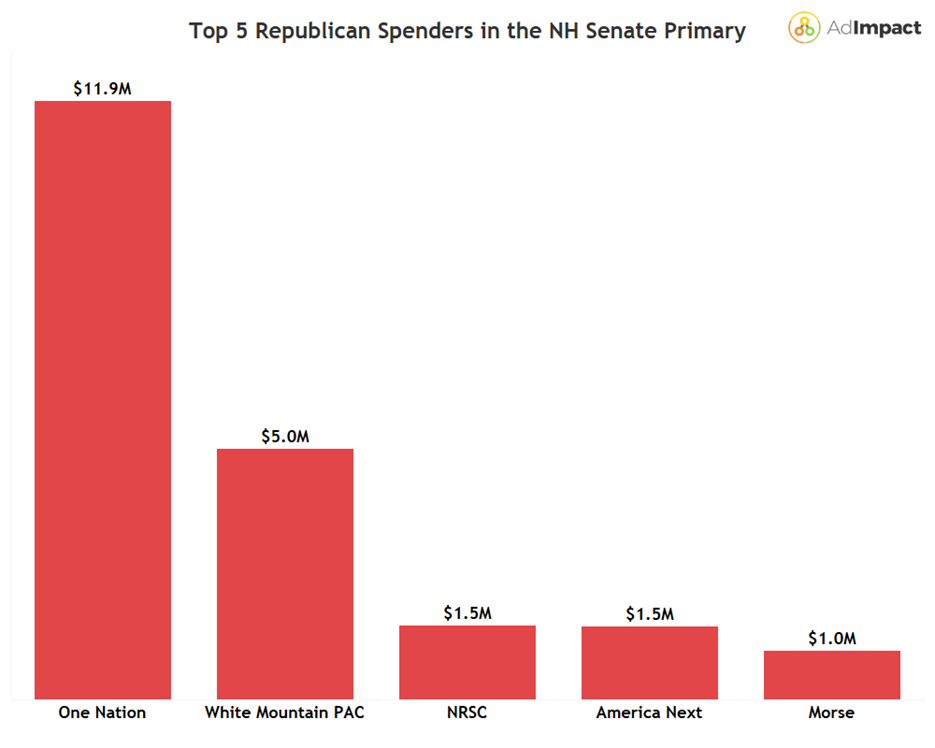
With Senator Hassan not facing any opposition, her campaign and Democratic issue groups have spent money supporting her record fighting price gouging, advocating for disability rights, and her record as Governor. Interestingly, the Senate Majority PAC spent $3.8M on ads attacking Chuck Morse as “another sleazy politician”. With this ad not mentioning Don Bolduc, this is notable in that a Democratic issue group went on the attack on the more moderate Republican candidate rather than focusing on the Trump-endorsed primary candidate.
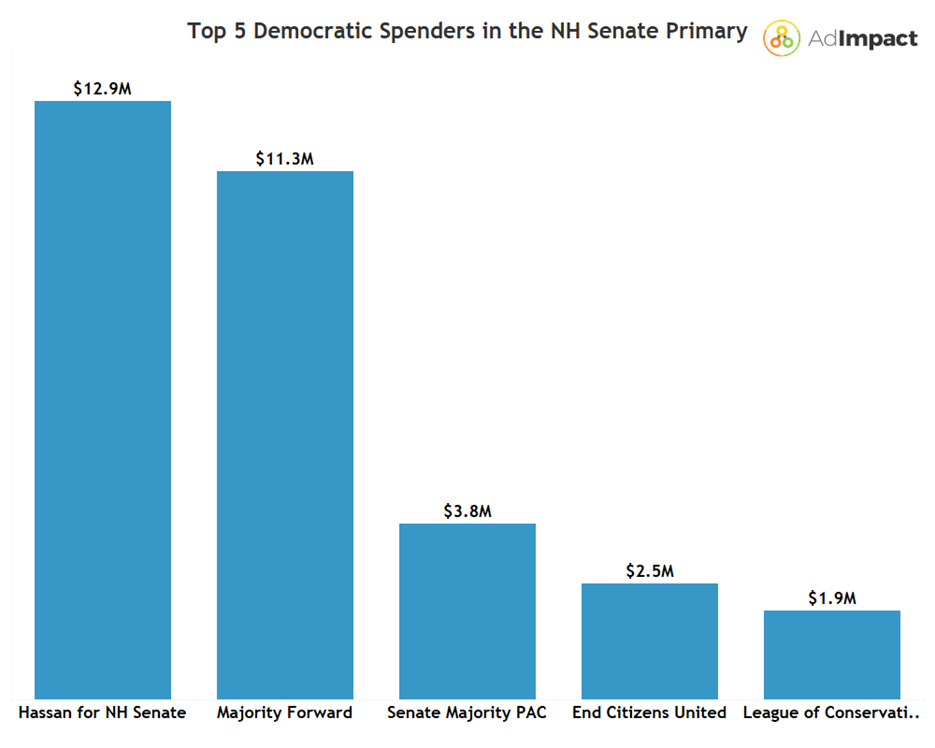
Rhode Island Campaign Spending Analysis
The Democratic primary for the Rhode Island’s Second Congressional District was not initially expected to be a notable primary this cycle. Since 2001, the seat has been occupied by Democrat Jim Langevin, who unexpectedly decided that he would not run for reelection earlier this year.
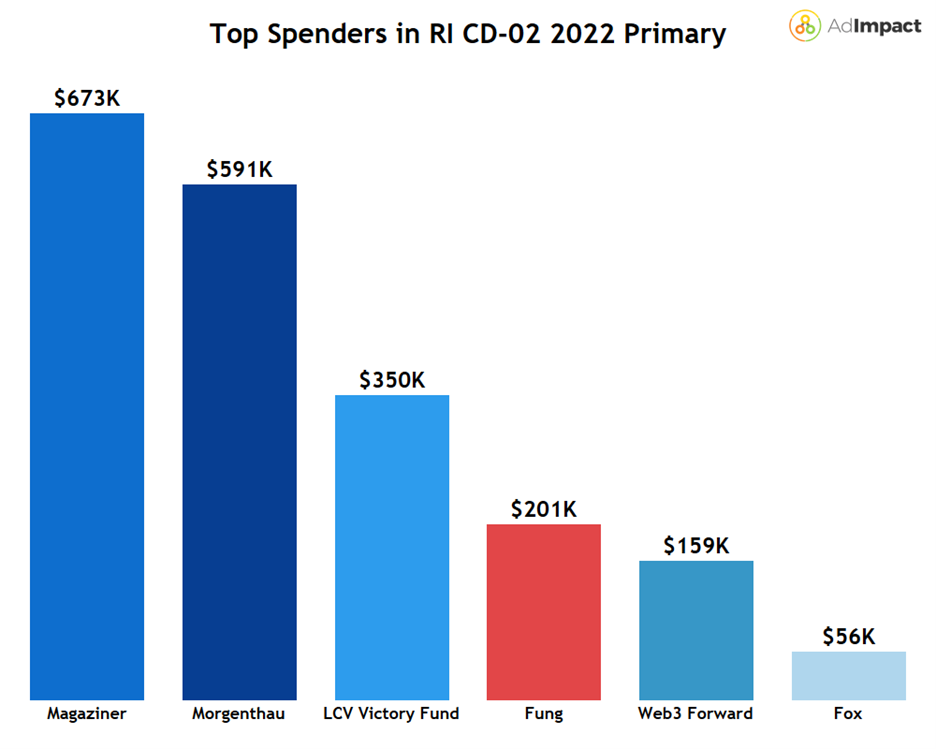
The highest spending candidate and favorite to win the primary, Seth Magaziner, withdrew from the Governor’s race when the seat opened up. He has been the Rhode Island State Treasurer since 2015. He’s spent the most out of any candidate in the primary so far, placing $670K worth of ads across broadcast and cable. In addition to a strong advertising presence, he also boasts a thirty point lead in a recent poll and also has an endorsement from Langevin himself. In addition to his individual spending lead, two issue groups have also placed ads supporting Magaziner. LCV Victory Fund and Web3 Forward, two groups who spend in Congressional and Senate races nationally, have spent a combined $500K on television ads. Both the issue groups and Magaziner have created ads that focus on how he can defeat the likely Republican candidate, Allen Fung.
Magaziner’s biggest competition, Sarah Morgenthau, previously worked in the Obama and Biden administrations but only recently registered to vote in the state of Rhode Island. She’s the lone candidate in the primary that does not have a connection to Rhode Island state politics, which may hurt her chances on primary day. She’s spent $590K on broadcast and cable ads.
On the Republican side, Allen Fung is running unopposed. Regardless, he has spent $200K on ads before the primary election and has already booked $80k on ads for the general election. Fung lost the 2018 Rhode Island gubernatorial election to Gina Raimondo.
RI Gubernatorial Primary
In the gubernatorial primary, $5.3M has been spent across eleven advertisers. Again, almost entirely by Democratic candidates and issue groups. The lone Republican spender, Ashley Kalus, is the second highest spender in the primary. She’s spent $1.2M on broadcast, cable, radio, ad digital ads regarding her economic plans and response to the pandemic.
For Democrats, the two highest polling candidates, incumbent Governor Dan McKee and current Rhode Island Secretary of State Nellie Gorbea are neck and neck in the most recent poll. Both are established presences in Rhode Island politics: McKee was Lieutenant Governor for seven years before falling into the governor position in 2021 when Biden selected then-governor Gina Raimondo as Secretary of Commerce and Gorbea has been the Secretary of State since 2015. When she won office in 2015, she became the first Hispanic person to win a statewide office in all of New England.
To add a wrinkle to the election, former CEO of Hudson’s Bay (owner of Saks Fifth Avenue) and CVS executive Helena Foulkes has outspent both of them in an attempt to make up ground in her lack of Rhode Island government connections. AdImpact has tracked $1.7M from Foulkes, primarily on broadcast ads, for the primary. McKee and Gorbea have only spent $910K and $770K, respectively in campaign spending analysis.
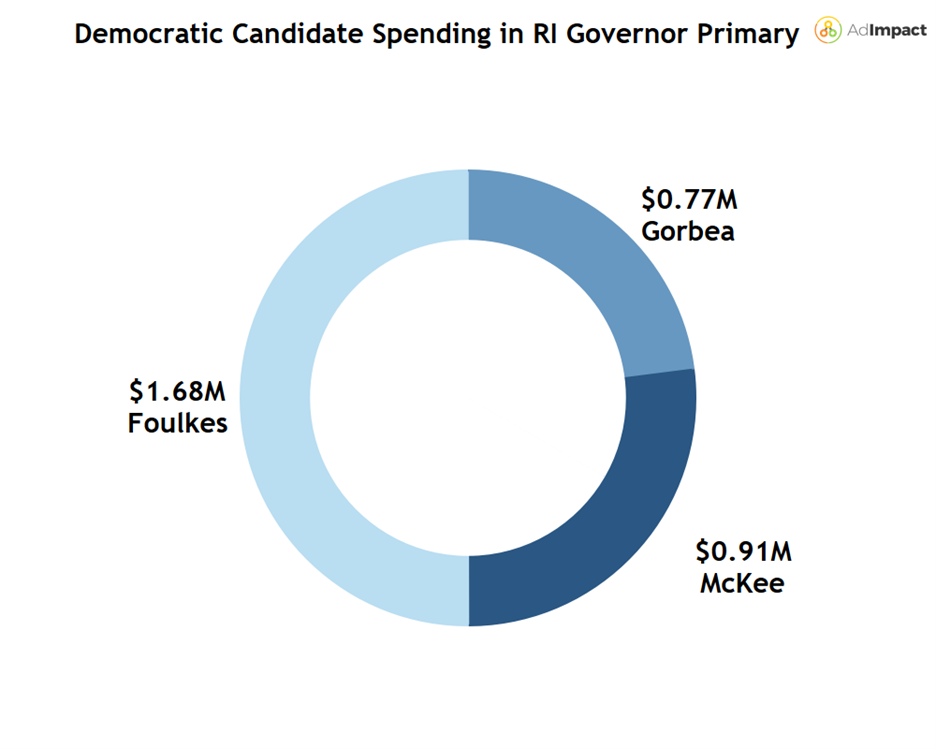
Unlike RI CD-02, which has candidates who are all focused on defeating the Republican opponent, the Democratic Governor nominees have been attacking each other on air all summer. McKee is attacking Gorbea and Foulkes for being desperate in their campaigns while Foulkes is returning the favor by highlighting McKee’s poor approval rating and current FBI investigation. Gorbea is the outlier, as she has not aired a negative ad about her opponents. However, Latino Victory Fund paid for an ad that criticizes McKee and Foulkes.
The Rhode Island Democratic gubernatorial primary is not a guarantee for any of the three leading candidates. It will set up a big clash with Kalus in the general election, who has already booked $1.1M for the general.

